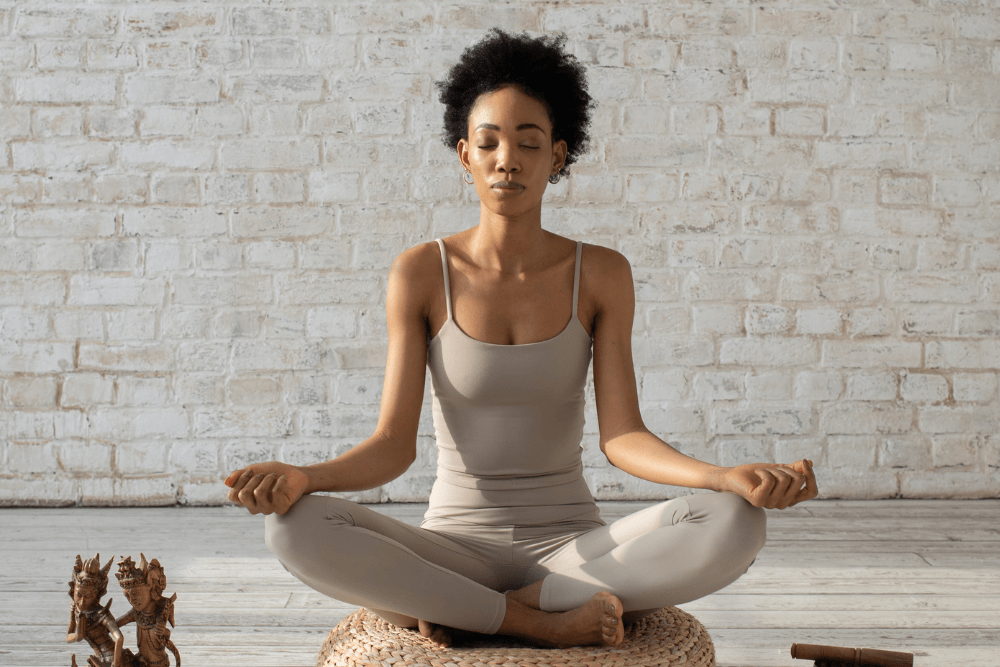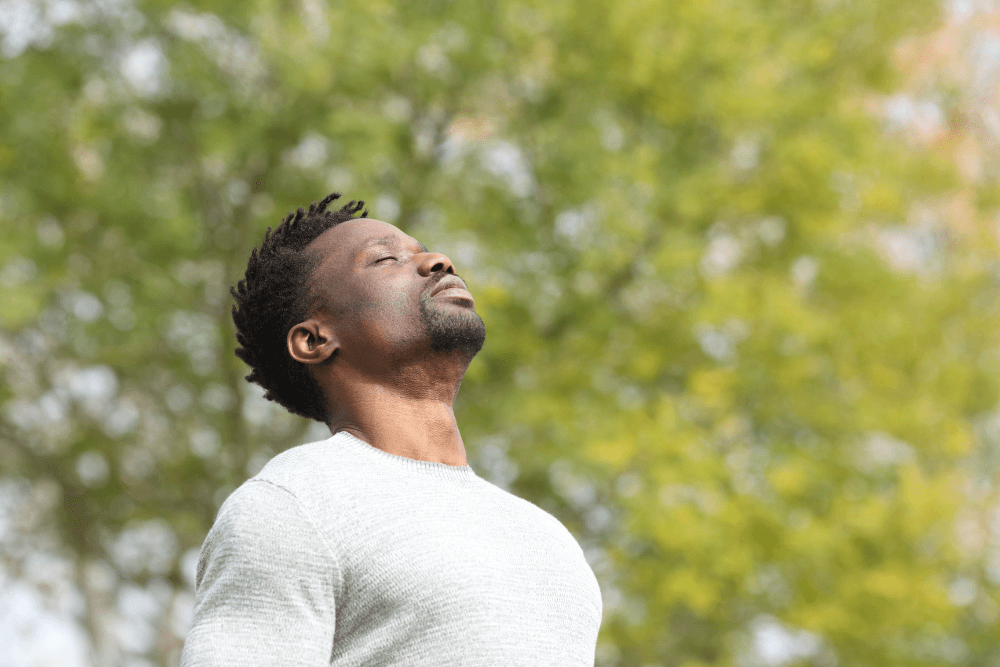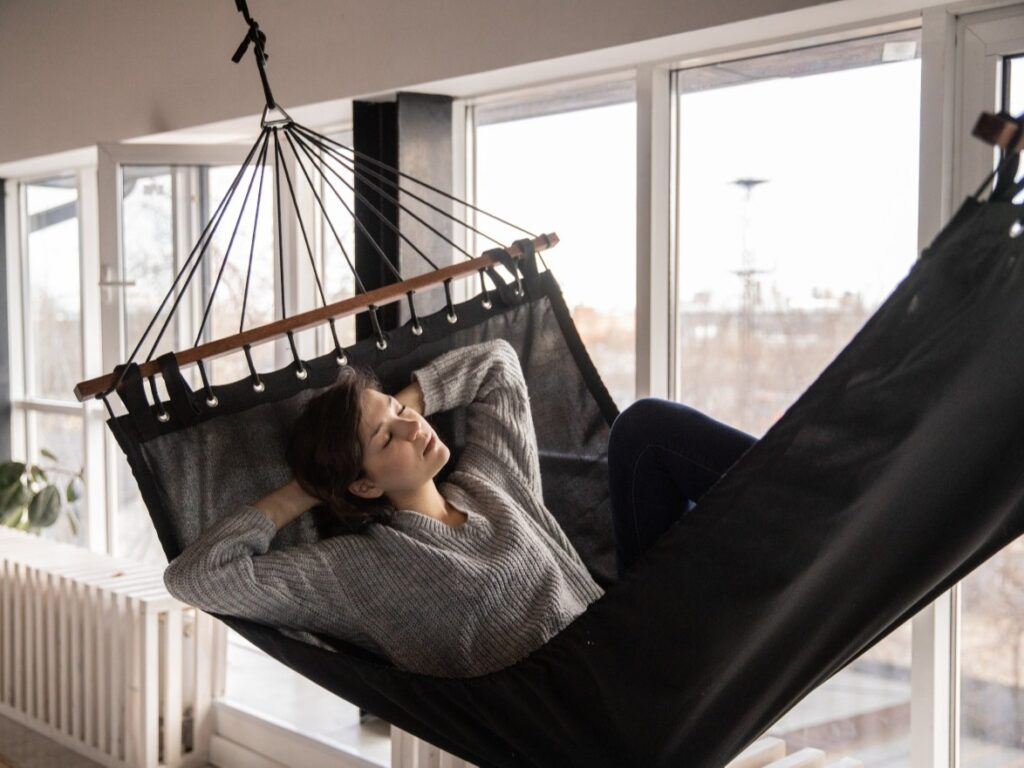How To Get A Good Night’s Sleep
- Category: Sleep
- October 18, 2021
If you’re someone who has a tough time getting a good night’s sleep, you’re probably tired of being tired all the time. Even if you tell yourself that tonight is the night you will go to bed early, sleep may still be elusive. Despite your efforts, you are still unable to fall or stay asleep. Instead, you remain awake, tossing and turning, feeling frustrated and exhausted.
Perhaps you fall asleep just fine at first but then wake up in the middle of the night and can’t fall back asleep. Maybe you do go back to sleep only to wake back up repeatedly. If any of this rings true for you, it’s probably time to change your nighttime sleep routines. Poor sleep can have negative effects on our physical and mental health, resulting in constant fatigue, anxiety, and poor decision-making.
What Causes Insomnia?
While there are many different reasons why someone can’t sleep, some of the root issues for insomnia are universal. Insomnia can be caused by mental health conditions, such as anxiety and depression, as well as an active mind at night. Stress levels and work schedules may also play a part in a person’s inability to fall and stay asleep. Other factors include what you eat and drink, the amount of regular physical activity and exercise you get, the medications you are taking, and if you practice good sleep hygiene. Here are some tips to get a better night’s sleep.
Watch Your Caffeine Intake
First, consider how much caffeine you consume and at what point of the day. Are you a fan of drinking coffee all day? Do you find yourself reaching for your favorite energy drink in the afternoon? Consuming too much caffeine has the potential to delay when you fall asleep, especially if you’re drinking caffeinated beverages late in the day or at night.
While drinking coffee can make it hard to fall asleep, energy drinks contain up to three times as much caffeine as a standard cup of coffee. If you drink soda, in most cases, you’re taking in both sugar and caffeine. Caffeine could affect your ability to fall asleep while sugar can affect how long you stay asleep.
Caffeine can hinder the production of adenosine, the brain’s natural sleep chemical. To have a proper sleep cycle, this chemical needs to accumulate. If we spend the day consuming caffeine, this chemical never gets the chance to build up and, as a result, we are awake and alert for longer than we’d like to be at night.
Go to Sleep at a Consistent Time Each Night
Get into the habit of going to bed at the same time every night. By having a consistent bedtime, we are telling our brain and body that it is time to wind down and be done with the day. Create a routine that you can stick with.
Unplug and Shut Down
Are you in front of a computer screen all day? Do you sleep with your phone or tablet? Do you watch TV in bed before sleeping? All of these things could be affecting your ability to get sufficient sleep.
Electronics emit a blue light that affects our internal production of melatonin, a natural chemical that helps us fall asleep. The blue light that is produced by electronic devices tricks our brain into thinking it is still daytime and, as a result, our circadian rhythm is interrupted.
Food and Drink
Do you keep a bottle of water by your bed? While staying hydrated is a good thing, how much water you drink and how late you drink it can keep you from getting a good night’s rest. You may be sound asleep, but you wake up in the middle of the night as your bladder tells you that it’s time to take a walk to the bathroom.
Some people may struggle with sleep eating. Individuals who struggle with nocturnal eating disorders often have trouble staying asleep or falling asleep unless they can eat. Sleep eating often occurs when the individual is not fully awake. Individuals who struggle with nocturnal sleep eating often wake up fatigued and unable to remember eating.
Yoga and Sleep
Engaging in a yoga or meditation practice can help you drift off into dreamland a little faster. Yoga apps have practices designed specifically to help you prepare for sleep. The apps will let you choose the length and type of practice you want to try. If you don’t want to use an app, you can find yoga and meditation videos on Youtube.
Not getting enough sleep can have a negative effect on your physical and mental health. If your routines are keeping you up at night, it’s time to change them. To keep up with the rapid pace of the modern world, we may reach for coffee, energy drinks, or an energy supplement to get by. However, consuming such things can greatly affect our quality of sleep. The same is true if we have an overactive mind at night. If we can’t relax, we can’t fall asleep and, as a result, we are always exhausted. However, when you begin to change your habits, you can reset your mind and body to get the sleep you need. Doing such things as having a consistent bedtime routine, avoiding drinking caffeinated beverages a few hours before bedtime, and setting down electronics are good places to start. SokyaHealth provides wellness consulting, nutrition counseling, and anxiety solutions. Call us at 800-930-0803.



